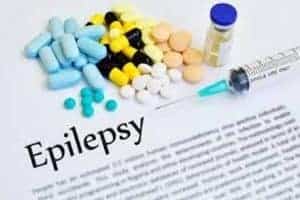
Epilepsy Drug No Help Against Migraines. The epilepsy drug oxcarbazepine was strongly believed to have prevented migraine headaches; however, a new study suggests that this is not so. Epilepsy drugs such as oxcarbazepine have long been used for migraine prevention, according to Dr. Stephen Silberstein of the Jefferson Headache Center in Philadelphia and associates. […]

Epilepsy Drug No Help Against Migraines. The epilepsy drug oxcarbazepine was strongly believed to have prevented migraine headaches; however, a new study suggests that this is not so. Epilepsy drugs such as oxcarbazepine have long been used for migraine prevention, according to Dr. Stephen Silberstein of the Jefferson Headache Center in Philadelphia and associates.
Oxcarbazepine—marketed as Trileptal by Novartis or Trexapin by Taro—is used alone or in combination with other medications to treat certain types of seizures in people who have epilepsy and is in a class of medications called anticonvulsants. It works by decreasing abnormal excitement in the brain and has also been used to treat bipolar disorder.
In a nearly five-month long study, investigators randomly assigned 170 men and women with a history of migraine to either a daily dose of oxcarbazepine or an inactive placebo. Both groups included patients who experienced between three and nine migraine attacks within a month. The results of the study showed that there was no difference between the group receiving a daily dose of oxcarbazepine and the group receiving a daily placebo dose in the change in the number of migraine attacks experienced from the beginning to the end of the study.
Likewise, the study revealed the severity of migraine attacks and the amount of acute rescue medication required for those attacks was not affected by treatment allocation of either the medication or the placebo. “The results of this trial do not support preliminary data which had suggested oxcarbazepine was effective in preventing migraine,” Silberstein noted in a written pistatement. “While several epilepsy drugs have been used for decades to prevent migraine, oxcarbazepine did not prevent migraine in this study despite it being shown to be safe and well-tolerated.”
Migraine is a debilitating headache that usually causes pulsing or throbbing pain in one area of the head. During migraines, people are very light and sound sensitive and may become nauseated and vomit. Migraine is three times more common in women than in men and some patients can tell when they are about to have a migraine because they see flashing lights or zigzag lines; temporarily lose their vision; or experience other sensory anomalies, such as smelling citrus. It is believed that there are a variety of triggers for migraine, including anxiety or stress, a lack of food or sleep, exposure to light, and hormonal changes (in women).
Silberstein also noted that the three epilepsy drugs that most effectively prevent migraine—topiramate, divalproex, and gabapentin—each have several mechanisms by which they treat migraine, including the ability to regulate a brain chemical known as GABA. In contrast, oxcarbazepine has no apparent activity on GABA. Silberstein says it is possible that epilepsy drugs must be able to regulate brain chemical in order to prevent migraine.
GABA—or gamma-aminobutyric acid—is an inhibitory neurotransmitter found in the nervous system, that is, GABA helps the nerve impulses cross synapses and communicate with one another. Research has demonstrated GABA to be a very effective analgesic, eliminating pain from chronic conditions such as arthritis, lower back pain, and migraine.
The personal injury attorneys at Parker Waichman LLP offer free, no-obligation case evaluations. For more information, fill out our online contact form or call 1-800-YOURLAWYER (1-800-968-7529).


